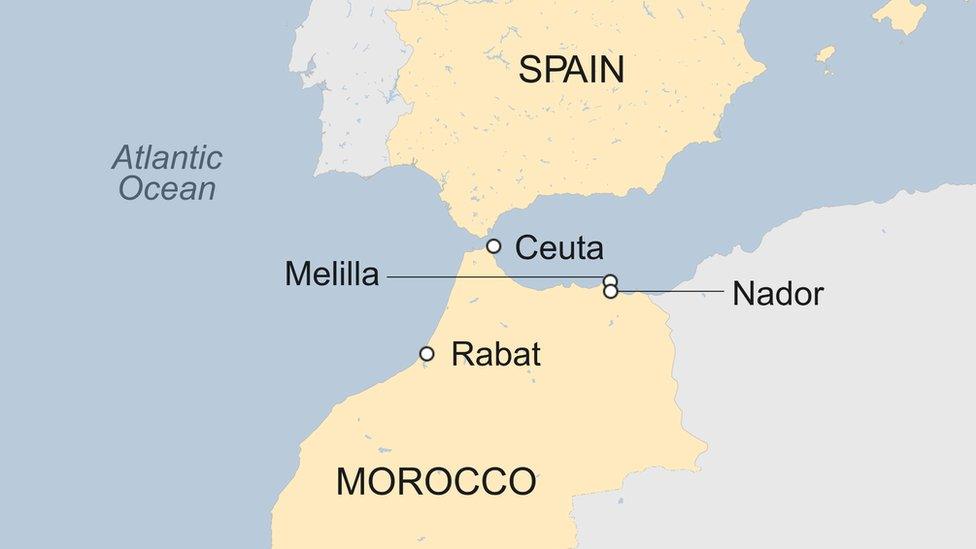Gibraltar profile
- Published
This page is no longer being updated. It was last updated on 19 May 2023
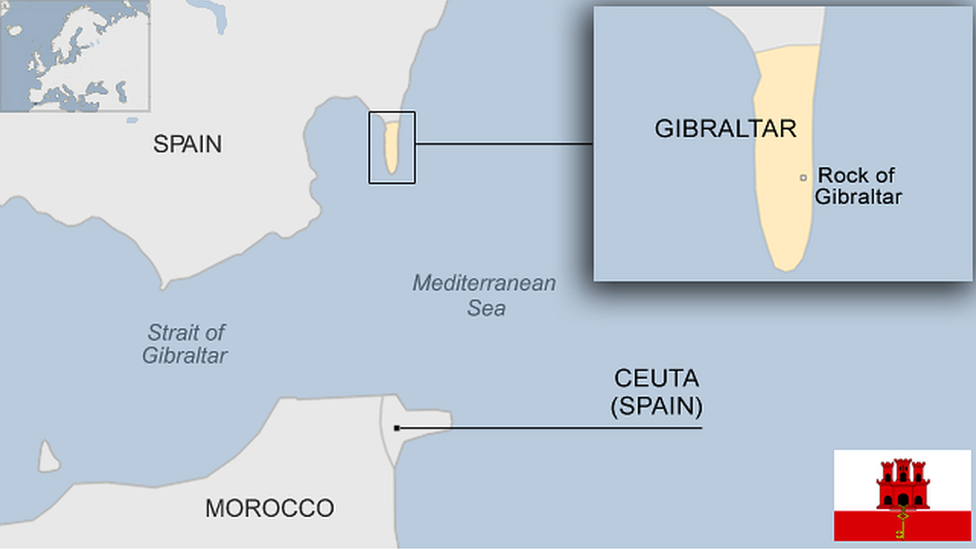
The British overseas territory of Gibraltar, a limestone outcrop on the southern tip of the Iberian peninsula, occupies a commanding position at the western gateway to the Mediterranean Sea.
Spain continues to claim sovereignty over the territory, which has been ruled by Britain since 1713 under the terms of the Treaty of Utrecht.
Named in Arabic "Jabal Tariq", after the Muslim commander Tariq Ibn-Ziyad, who turned "the Rock" into a fortress in 711, Gibraltar has been an important naval base for more than 1,000 years.
This long maritime history has resulted in a diverse population. Most Gibraltarians are bilingual in English and Spanish, and are of mixed Genoese, British, Spanish, Jewish, Maltese and Portuguese descent. Recent arrivals have included migrant workers from Morocco.
Read more country profiles, external - Profiles by BBC Monitoring, external
GIBRALTAR: FACTS
Capital: Westside, Gibraltar (de facto)
Area: 6.8 sq km
Population: 34,000
Languages: English, also Spanish, Llanito
Life expectancy: 75 years (men) 81 years (women)
LEADERS
Head of state: King Charles III, represented by a governor
Chief minister: Fabian Picardo
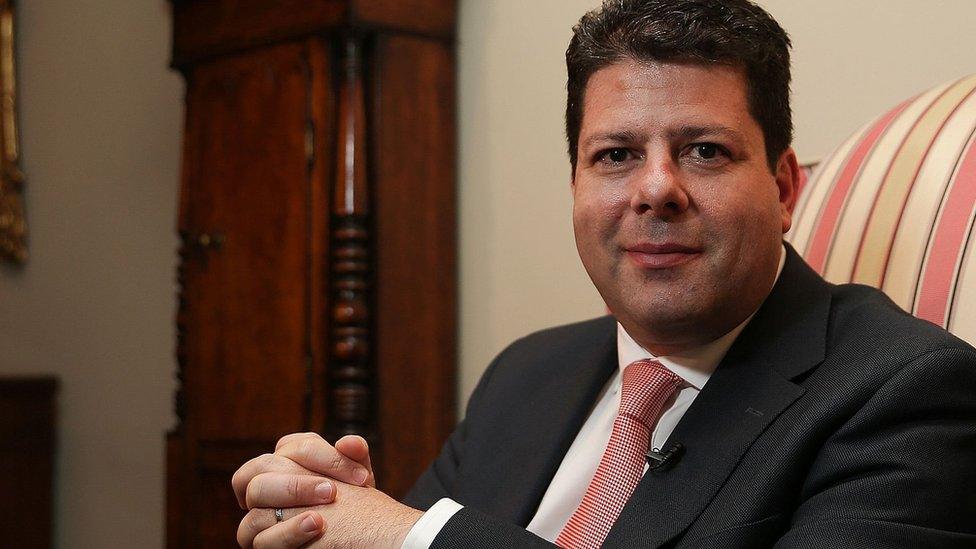
Fabian Picardo became chief minister in December 2011 and again in November 2015 and October 2019 after elections won by the coalition made up of the Gibraltar Socialist Labour Party and the Gibraltar Liberal Party (GLP).
He heads the Gibraltar Socialist Labour Party.
Mr Picardo was born in Gibraltar in 1972 and studied law at Oxford University. After graduating from Oxford, he attended the Inns of Court School of Law at Gray's Inn in London.
Mr Picardo's predecessor as chief minister, Peter Caruana, held the post for more than 15 years, from 1996 to 2011.
Mr Caruana strongly opposes the idea of shared sovereignty with Spain and oversaw a 2002 referendum that roundly rejected the concept.
He has been credited with helping to develop Gibraltar's offshore financial industry. In 2010, he said his government was transforming the economy from a European tax haven to a financial services hub.
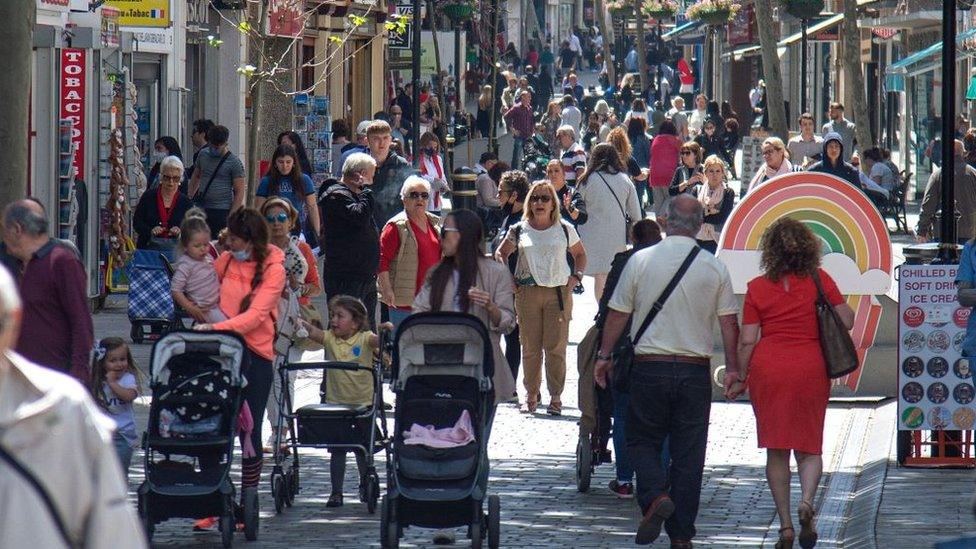
Gibraltarians are British citizens. It is self-governing in all areas except defence and foreign policy and is home to a British military garrison and naval base.
The UN has urged Spain and Britain to resolve the issue of Gibraltar's status. Both sides, under the Brussels Process launched in 1984, have attempted to reach an agreement.
But Spain's insistence on eventually acquiring full sovereignty, and Britain's determination to retain full control of Gibraltar's military base, have been among the stumbling blocks.
Gibraltar's 1969 constitution states that there can be no transfer of sovereignty to Spain against the wishes of locals. In a 2002 referendum Gibraltarians resoundingly rejected the idea of joint sovereignty.
Free travel between Spain and Gibraltar was fully restored in 1985, but travellers continued to suffer delays at the border.
In 2006, passenger flights between Spain and Gibraltar resumed for the first time in nearly 30 years, but 2013 saw renewed border checks by Spain in response to a Gibraltarian plan to build an artificial reef.
MEDIA
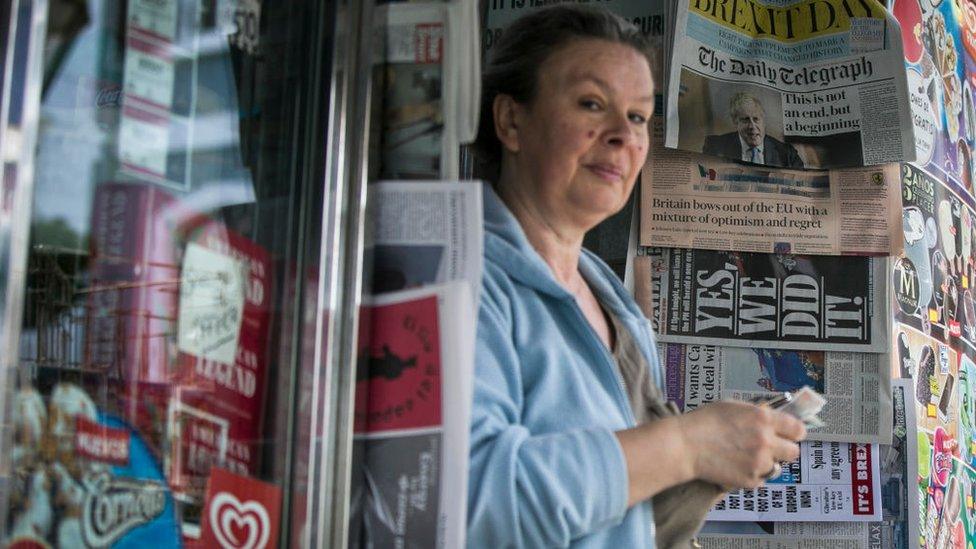
Television and radio services on the Rock are operated by the Gibraltar Broadcasting Corporation (GBC).
Radio and TV stations based in Spain, and broadcasts for British forces in the territory, can be received.
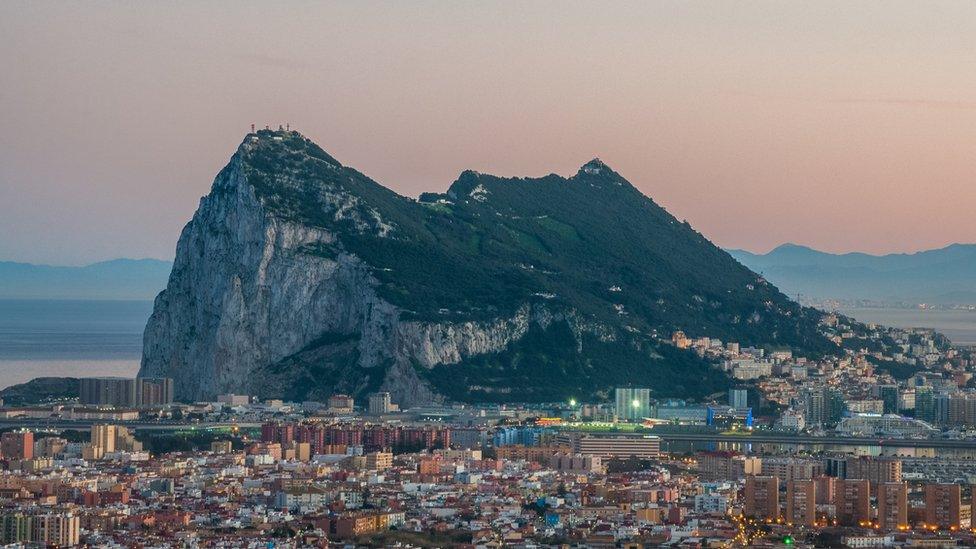
Much of Gibraltar's income comes from customs duties, offshore finance, internet gaming, tourism and the provisioning of ships
Some key dates in Gibraltar's history:
711 - Gibraltar captured by Muslim commander Tariq Ibn-Ziyad.
1462 - Spain recovers Gibraltar from the Moors.
1501 - Isabella I, queen of Castile and Aragon, annexes Gibraltar to Spain.
1704 - English capture Gibraltar during War of Spanish Succession.
1713 - Spain cedes Gibraltar to Britain under the Treaty of Utrecht.
1830 - Britain designates Gibraltar a British crown colony.
1940 - Civilian population temporarily evacuated to make Gibraltar a military fortress during the World War Two. Discontent at the slow pace of repatriation after the war becomes one of the sources of demands for self-government.
1950 - First Legislative Council convened.
1963 - Spanish government begins a campaign through UN for the handover of Gibraltar to Spain.
1967 - Gibraltarians vote resoundingly in favour of continued British sovereignty in referendum.
1969 - Britain introduces full internal self-government under a new constitution, with an elected House of Assembly. Spain closes border with Gibraltar, withdraws labour force and cuts transport and communication links in protest.
1973 - Gibraltar joins the European Economic Community alongside Britain.
1980 - Lisbon agreement between UK and Spain initiates the gradual re-establishment of talks over Gibraltar.
1981 - Gibraltarians granted full British citizenship after a campaign against the British Nationality Act, which had proposed removing their right of entry to Britain.
1984 - Britain and Spain agree to provide equal rights for Spaniards in Gibraltar and for Gibraltarians in Spain. Free border crossing between Spain and Gibraltar is restored.
2002 - Referendum reaffirms almost total Gibraltarian opposition to UK proposals for joint British-Spanish sovereignty. UK reaffirms that no decision on Gibraltar's future will be made without the consent of Gibraltarians.
2004 - Gibraltar marks the 300th anniversary of the establishment of British rule.
2006 - Britain, Spain and Gibraltar sign a landmark agreement under which border controls are further eased. Spain agrees to allows flights to Gibraltar's airport. The deal makes no mention of sovereignty.
2006 - Voters back a new constitution in referendum confirming Gibraltarian home rule, and renaming the House of Assembly the Parliament of Gibraltar.
2009 - Spanish Foreign Minister Miguel Angel Moratinos visits Gibraltar, the first visit by a Spanish minister since Britain captured the Rock.
2014 - Declassified documents show former King Juan Carlos of Spain told Britain in 1982 that it was not in his country's "interest to recover Gibraltar in the near future" as it would trigger Moroccan claims to the Spanish territories of Ceuta and Melilla.
2016 - UK referendum on EU membership, 96% of Gibraltarians vote to remain. Turnout is 84%.
2020 - UK and Gibraltar leave the EU. UK and Spain agree in principle to a basis on which the UK and the EU could negotiate terms for Gibraltar to participate some aspects of the Schengen Agreement to ease border movements. The arrangements have not entered into force.
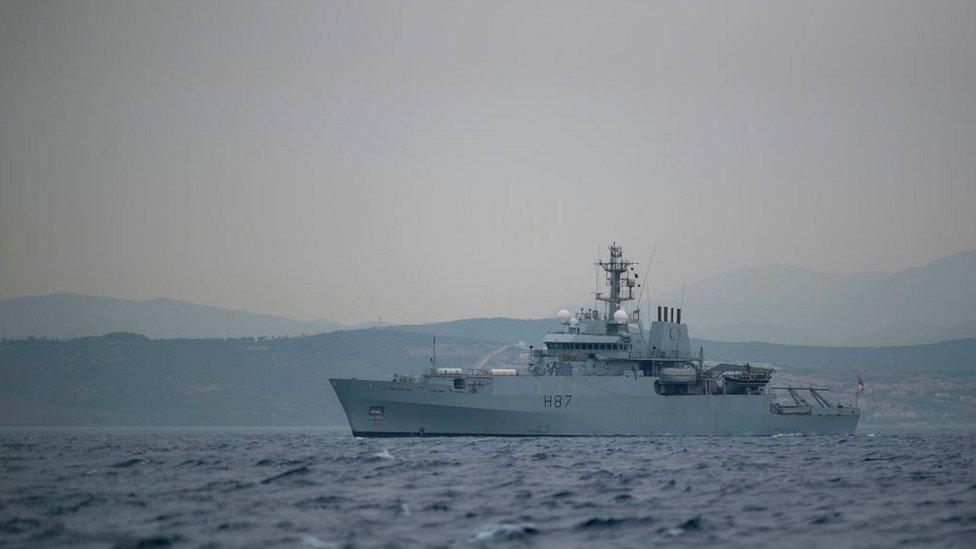
Gibraltar has been a key British naval base ever since the 18th Century
- Published9 July 2024
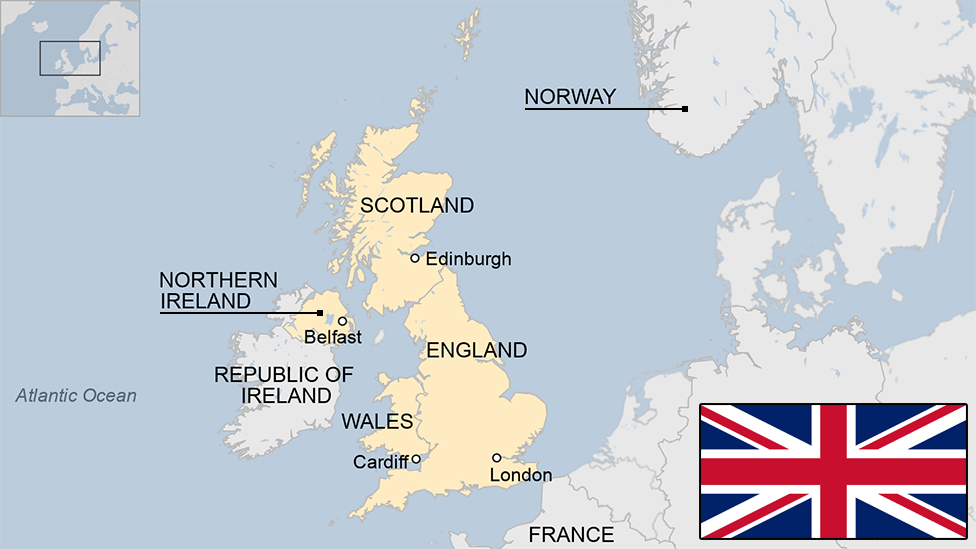
- Published22 March 2024
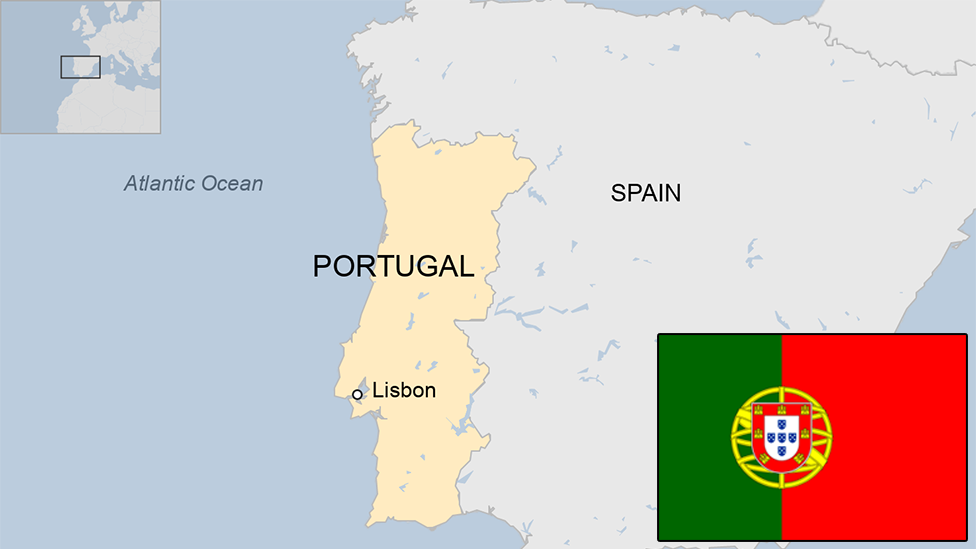
- Published21 August 2023

- Published28 October 2024
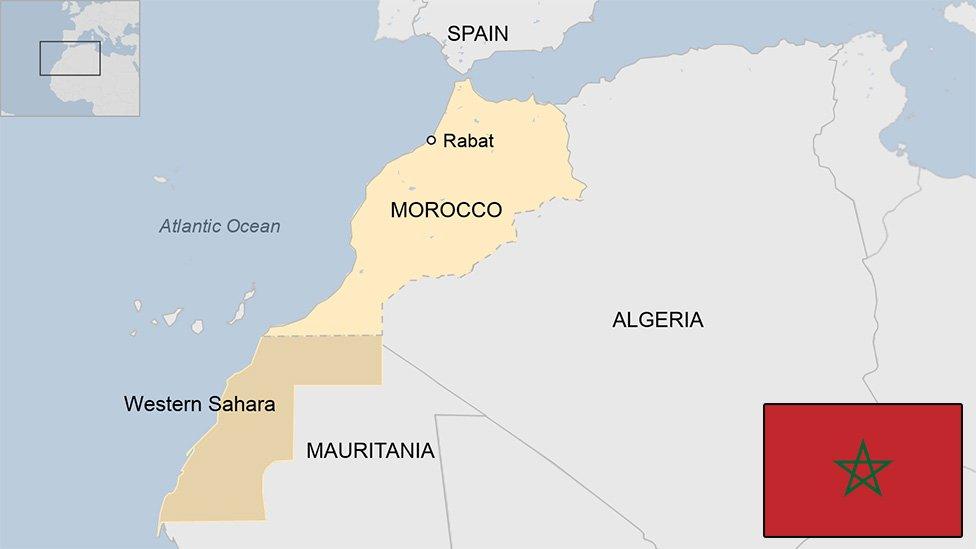
- Published18 May 2023
